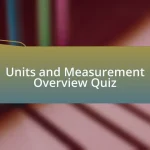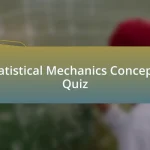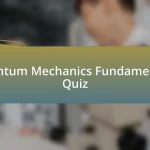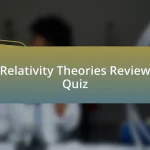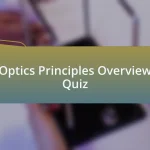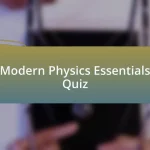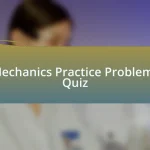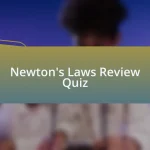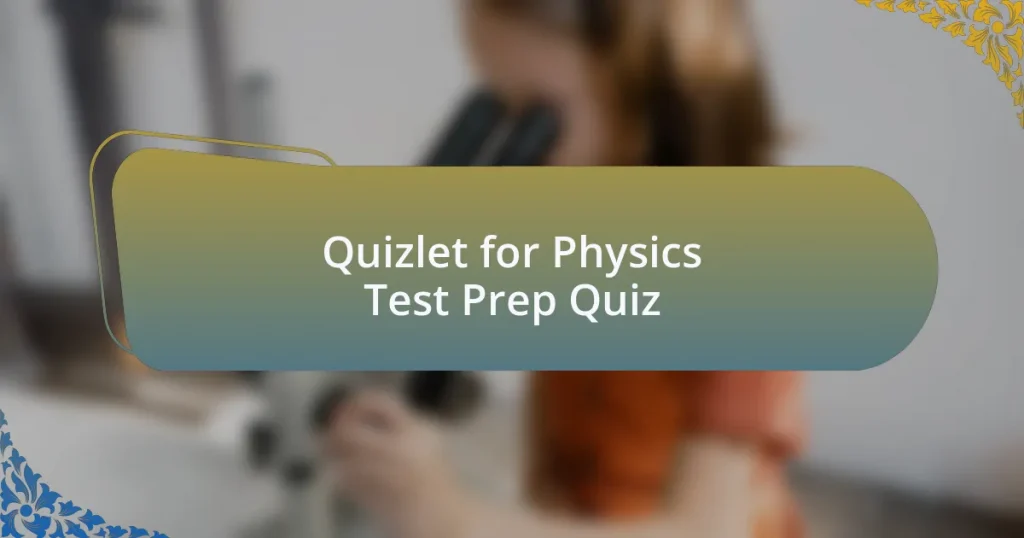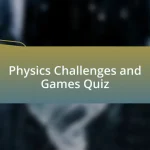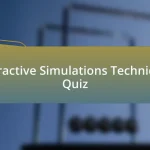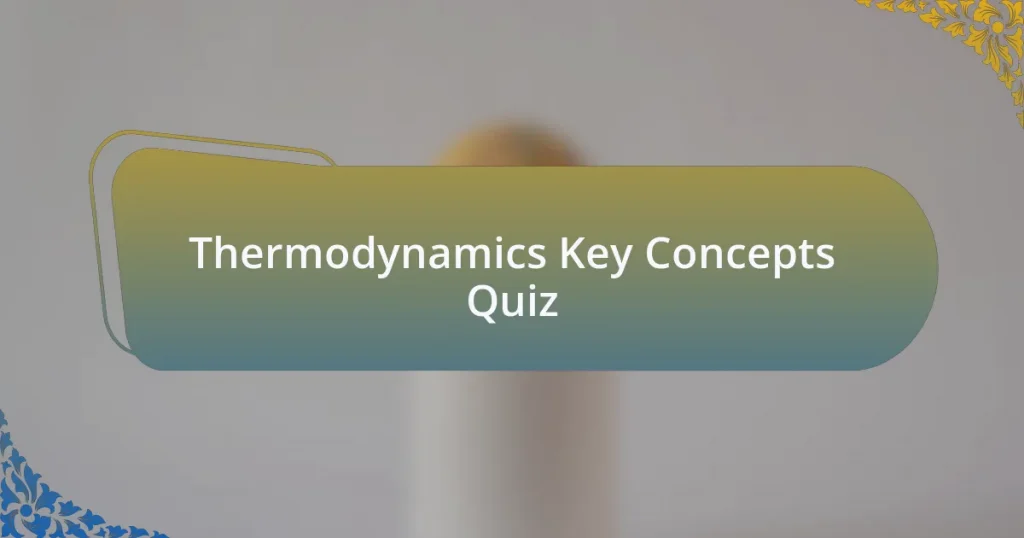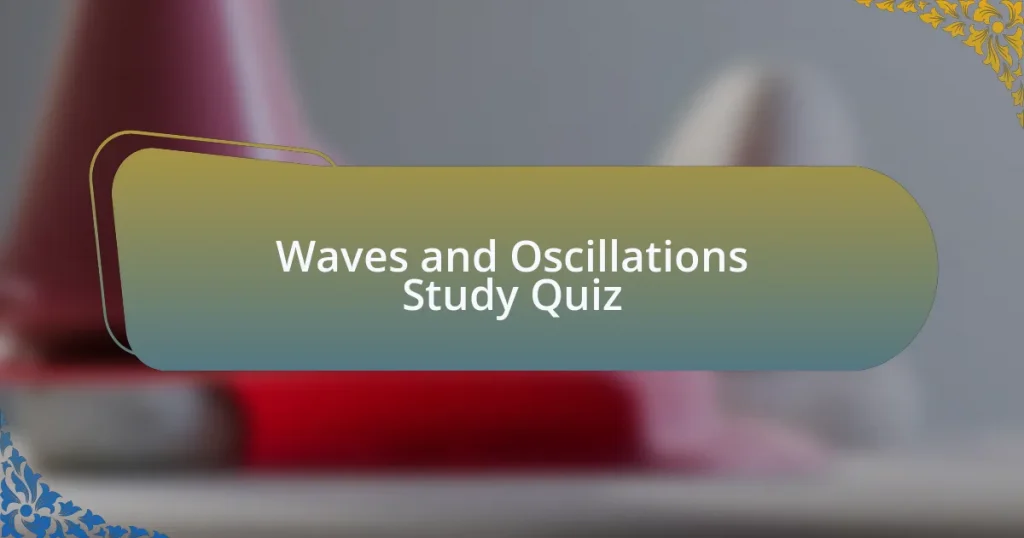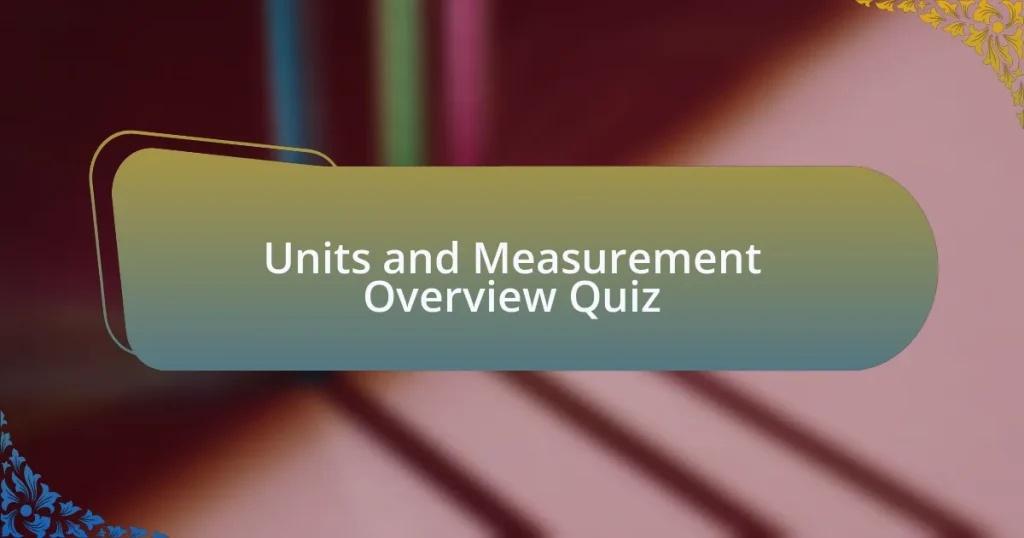Start of Quizlet for Physics Test Prep Quiz
1. When a junked car is compacted, what happens to its density?
- Its density increases.
- Its density remains the same.
- Its density decreases.
- Its density becomes zero.
2. What does the Equilibrium Rule state?
- Forces must balance for an object to be stationary.
- Whenever the net force on an object is zero, the object is said to be in mechanical equilibrium.
- An object is in equilibrium when it is at rest only.
- Objects will remain in motion unless acted upon by a force.
3. What is the absolute lowest temperature that can be reached called?
- Freezing point
- Absolute zero
- Critical temperature
- Melting point
4. If objects A and B are at the same temperature, what can be inferred about their thermal energy?
- They have the same thermal energy.
- One has more thermal energy than the other.
- One is losing thermal energy while the other is gaining.
- Their thermal energy is unrelated to their temperature.
5. Why does a metal fence post feel colder than a wooden fence post on a cold day?
- Metal is lighter than wood.
- Metal has a higher thermal conductivity than wood.
- Wood absorbs heat faster than metal.
- Metal has a lower specific heat than wood.
6. What do you call a body that absorbs all radiation falling on it?
- A reflective surface.
- A semi-reflector.
- A translucent material.
- A perfect absorber.
7. How are scientific facts verified?
- Tradition.
- Random guessing.
- Personal opinion.
- The scientific method.
8. What is your momentum when you are standing at rest?
- It is maximum.
- It is negative.
- It is infinite.
- It is zero.
9. What is the term used for the ejection of electrons from an atom?
- Atomic fission
- Electron capture
- Radiation emission
- Ionization
10. What opposes motion between two surfaces in contact?
- Gravity
- Momentum
- Acceleration
- Friction
11. What force acts between two magnetic poles?
- Gravitational force
- Electric force
- Magnetic force
- Nuclear force
12. What term describes the amount of matter in an object?
- Density
- Volume
- Mass
- Weight
13. What do we call the space that an object occupies?
- Density
- Weight
- Mass
- Volume
14. How is density defined in terms of mass and volume?
- Density is defined as mass minus volume.
- Density is defined as mass divided by volume.
- Density is defined as volume divided by mass.
- Density is defined as mass plus volume.
15. What is the force due to gravity acting on an object called?
- Weight
- Gravity
- Mass
- Force
16. Which term describes the resistance an object has to a change in its state of motion?
- Mass
- Acceleration
- Inertia
- Force
17. What term is used for the force acting on a moving object?
- Energy
- Velocity
- Momentum
- Force
18. What force resists motion when an object is stationary?
- Friction
- Tension
- Acceleration
- Gravity
19. What do we call the energy associated with motion?
- Kinetic energy
- Potential energy
- Thermal energy
- Chemical energy
20. What type of energy is stored in an object?
- Thermal energy
- Potential energy
- Kinetic energy
- Radiant energy
21. What is the term for energy that can convert from one form to another?
- Nuclear energy
- Chemical energy
- Mechanical energy
- Radiant energy
22. How do we define heat in terms of energy transfer?
- Heat is the total kinetic energy of particles.
- Heat is the energy required to change temperature.
- Heat is energy transferred due to temperature difference.
- Heat is energy stored within an object.
23. What is the process of gaining heat energy called?
- Freezing
- Heating
- Cooling
- Condensation
24. What is the process of losing heat energy referred to?
- Melting
- Boiling
- Heating
- Cooling
25. What is the temperature at which an object neither gains nor loses heat called?
- Thermal equilibrium
- Boiling point
- Freezing point
- Absolute zero
26. What terminology describes a change in an object`s temperature?
- Energy transfer
- Heat loss
- Temperature change
- Thermal expansion
27. What describes the rate at which heat energy is transferred?
- Energy conservation
- Temperature gradient
- Thermal efficiency
- Heat transfer rate
28. What term refers to materials that easily conduct heat?
- Conductor
- Resistor
- Insulator
- Semi-conductor
29. What is called when a material resists heat flow?
- Insulator
- Absorber
- Semi-conductor
- Conductor
30. What do we call a material that allows some heat to pass through it?
- Superconductor
- Semi-conductor
- Insulator
- Conductor
Congratulations! You’ve Successfully Completed the Quiz
Thank you for taking the time to complete our quiz on Quizlet for Physics Test Prep. We hope you found it engaging and informative. This quiz aimed to deepen your understanding of how Quizlet can enhance your study sessions. From new study techniques to best practices for using online flashcards, there’s always more to explore in your test preparation journey.
As you progressed through the questions, you may have discovered effective ways to apply Quizlet’s features for mastering complex physics concepts. Whether it was through interactive quizzes or customized study sets, each item helped reinforce key ideas you need for your upcoming exams. Remember, the more you actively engage with the material, the better prepared you’ll be!
If you’re eager to extend your learning even further, we invite you to check out our next section dedicated to deeper insights into Quizlet for Physics Test Prep. This resource will provide you with additional tips, resources, and strategies tailored to optimize your study experience. Enhancing your physics knowledge has never been easier, so take the next step in preparing for success!
Quizlet for Physics Test Prep
Understanding Quizlet for Physics Test Preparation
Quizlet is a digital learning platform that allows students to study effectively through flashcards, quizzes, and games. For physics test preparation, it provides valuable resources tailored to specific topics in physics, such as mechanics, thermodynamics, and electromagnetism. Users can create personalized study sets or access pre-made ones, enabling focused review on areas needing improvement.
Benefits of Using Quizlet for Physics Studies
Using Quizlet for physics test prep offers several advantages. It enhances retention through active recall and spaced repetition methods. The interactive nature of quizzes and games also makes learning engaging. Additionally, students can track their progress, identify weak spots, and aggregate resources from various physics topics to streamline their studying process.
How to Create Effective Physics Flashcards on Quizlet
Creating effective flashcards for physics on Quizlet involves focusing on key concepts, definitions, and equations. Each flashcard should contain clear and concise information, ideally supplemented with images or diagrams where applicable. Using Quizlet’s features like audio pronunciation can aid in memorizing complex terminology and concepts. Consistently reviewing these flashcards reinforces memory and understanding.
Utilizing Quizlet’s Study Modes for Physics Exam Prep
Quizlet provides several study modes that cater to different learning preferences. The ‘Learn’ mode adapts to users’ progress, presenting questions based on their strengths and weaknesses. The ‘Test’ mode simulates exam conditions, allowing students to practice under pressure. Engaging with these modes helps solidify understanding and prepares students for real test scenarios in physics.
Collaborative Features of Quizlet for Group Physics Studies
Quizlet supports collaboration through shared study sets and group features. Students can work together by sharing flashcards and quizzes, enhancing understanding through discussion and peer explanations. This collaborative approach allows for diverse perspectives on complex physics concepts, fostering a deeper comprehension and preparing for collaborative test formats.
What is Quizlet and how is it used for Physics test preparation?
Quizlet is an online learning tool that allows users to create and study sets of flashcards and other learning materials. For Physics test preparation, students can utilize Quizlet to access pre-made study sets focusing on physics concepts, formulas, and vocabulary. These study sets enhance retention and understanding by enabling interactive learning methods such as quizzes and games. The extensive library of user-generated content ensures diverse topics covering various physics subjects such as mechanics, thermodynamics, and electromagnetism.
How can Quizlet improve Physics test scores?
Quizlet can improve Physics test scores by facilitating active recall and spaced repetition. Active recall involves testing knowledge instead of passively reviewing notes, which is proven to enhance memory retention. Spaced repetition uses increasing intervals between study sessions, which helps strengthen long-term memory of physics concepts. Studies suggest that these techniques can lead to better academic performance; for example, research indicates that students who engage with active recall achieve higher test scores than those using conventional study methods.
Where can students find Quizlet study materials for Physics?
Students can find Quizlet study materials for Physics directly on the Quizlet website (quizlet.com) or through the Quizlet mobile app. They can search for specific topics by entering keywords such as “Physics,” “kinematics,” or “waves” in the search bar. Additionally, various educational institutions and teachers may share their sets publicly on Quizlet, providing further resources specifically tailored for Physics test preparation.
When should students start using Quizlet for Physics test prep?
Students should start using Quizlet for Physics test prep as early as possible in their course. Engaging with the material regularly throughout the semester allows for better comprehension and retention. Beginning study sessions weeks or even months before an exam can significantly ease the burden of last-minute cramming. Research shows that consistent study over time leads to improved performance compared to intensive last-minute reviews.
Who can benefit from using Quizlet for Physics test preparation?
High school and college students can benefit from using Quizlet for Physics test preparation. It caters to various learning styles, making it suitable for visual learners who prefer flashcards and interactive content, as well as auditory learners who can benefit from verbal explanations provided in certain study sets. Additionally, teachers can utilize Quizlet to create customized study materials for their students, enhancing overall learning in physics education.


